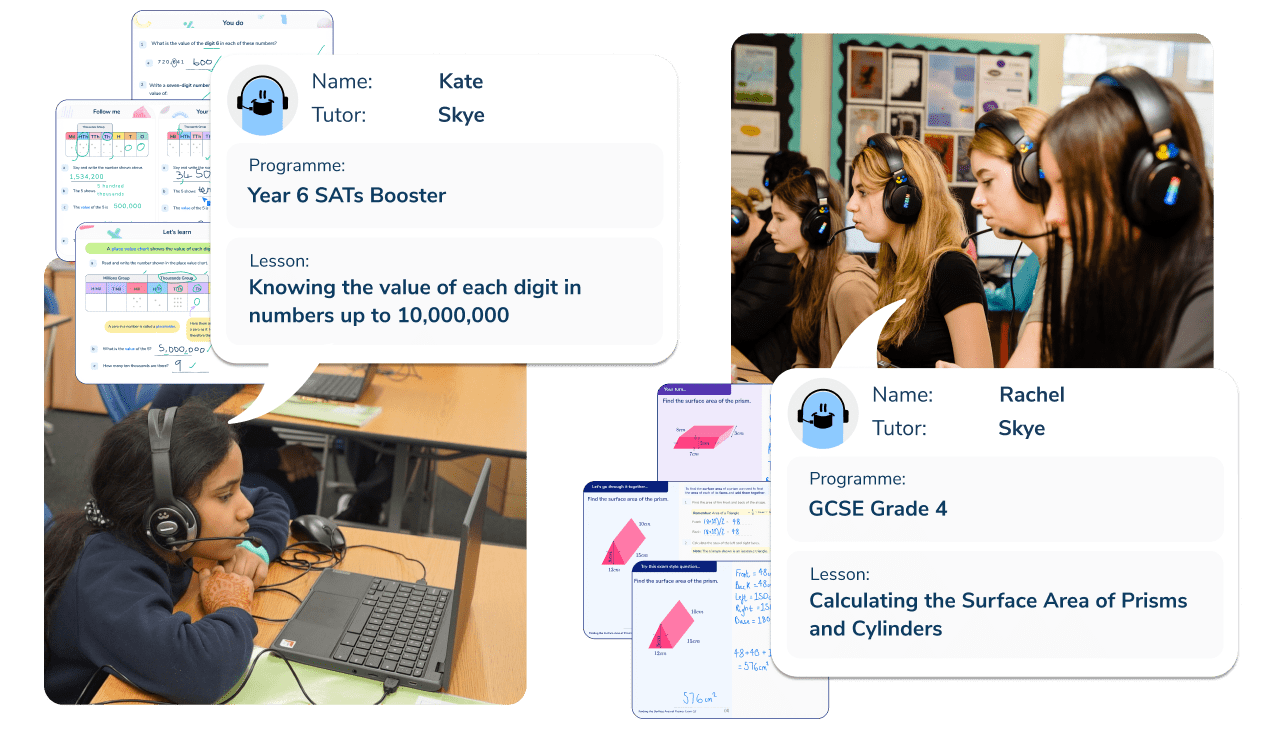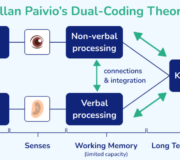Five Things I Knew At The End Of My ECT Years That I Wish I’d Known At The Start: Top ECT Advice To Help You Get Through
ECT, formerly known as NQT, advice can be found everywhere online, but with conflicting advice coming from all sides it can be difficult to know who to trust in what can be one of the most daunting times a teacher will face. Fortunately, former Early Careers Teacher Sophie Bee (A.K.A @_MissieBee) has been there, done it and got the teaching t-shirt, and she is now here to help with 5 pieces of ECT advice to help you throughout the year!
You know when you walk away from a conversation mulling it over, and about five hours later you think of something you should’ve said but it’s too late? Then, afterwards you wish your current-self was there telling your past-self your new revelations?
Your ECT years is a little bit like that.
At the end of it (and even years later…) you reflect on what you’ve done, wishing you could have gone back to tell yourself all these things you know now. Some things are important to learn yourself, but sometimes it’s reassuring to be told by someone else and to learn from their mistakes.
So think of me as your future-self, telling you things that you will know by the end of your ECT years, but that I’m telling you now to save you some time…
A quick note on ECT
Back when I completed my ECT it was known as your NQT (Newly Qualified Teacher) year. This change isn’t only a change in terminology, it’s actually a change in process of becoming a fully qualified teacher. It means:
• Your induction will be 2 academic years, instead of the 1 year of NQT;
• More and better quality CPD, funded by the DfE;
• Reduction in your teaching timetable for longer, 10% in your first year and 5% in your second;
• Support and guidance from an induction tutor
• Regular observations of ECT to support progress
The reason for this is to help early career teachers and to give them a more structured introduction to the profession. We know all too well how much pressure teaching involves and the new ECT years aims to support teachers as they find their teaching feet and to help reduce the percentage of newly qualified teachers leaving the profession.
Now, onto the all-important ECT advice!
ECT advice item 1: ‘wow’ lessons are unnecessary, and plain wrong
We all know the feeling: you’ve just settled into your new school, and it’s time for your mentor to observe.
You pull out the document you were given at university with a list of things that make an ‘outstanding’ (or replace with any other hyperbolic adjective) trainee lesson, and you try to shoehorn them into yours, because that’s what you’ve been told is good.
Well, it turns out that this is one piece of ECT years advice that is just plain wrong.
Luckily, it seems that there are many ITT (Initial Teacher Training) providers that have realised this practice is not only poor, but potentially detrimental.
No observation lesson should ever be a ‘one-off’; observations should be a true reflection of your day-to-day practice – otherwise, how can the feedback be anything but futile?

Tasks that can be perceived as ‘exciting’ and ‘engaging’ for the children are often just a waste of learning time. Children get excited and engaged by the act of learning itself, not meaningless activities metaphorically rolled in glitter.
Before you plan an observation lesson, ask yourself:
• What do I want the children to learn?
• How will they learn it?
• How will I know they’ve learnt it?
• And finally: Would I do these tasks/activities in my everyday teaching?
Once you’ve answered these questions and are happy with the conclusion you’ve come to for each, you’ll realise that those ‘Wow’ lessons really aren’t worth the time!

Meet Skye, the voice-based AI tutor making maths success possible for every student.
Built by teachers and maths experts, Skye uses the same pedagogy, curriculum and lesson structure as our traditional tutoring.
But, with more flexibility and a lower cost, schools can scale online maths tutoring to support every student who needs it.
Watch Skye in actionECT advice item 2: remember, children are allowed to dislike you
This is something I really struggled with at the start of my career. I really wanted the children to like me, but sometimes there was conflict between what I knew I should say or do, and what I wanted to say or do in order to stay on the children’s ‘good side’.
It is right that effective teaching and learning cannot occur in the classroom without positive relationships between student and teacher – however, having a ‘positive relationship’ doesn’t mean that the children will always like you.
The Ultimate Maths Vocabulary Activity Guide
Save some time when planning your lessons by using this guide which is filled with fun and simply maths vocabulary activities. Perfect for those in their ECT years!
Download Free Now!You are the adult, and ultimately know what is best – if anyone breaks a school rule, then there needs to be a consequence for that. They will, of course, dislike that consequence, and maybe even dislike you for sanctioning it, but positive relationships aren’t only built on being ‘nice’; they are built on mutual respect, consistent approaches to behaviour and setting boundaries.
In the long term, this is much more important (and beneficial) than whether Johnny is annoyed at you for the rest of the day because you kept him in at break-time. This particular ECT tip may feel very counter intuitive considering you are teaching children, but as the famous quote from John Lydgate states:
“You can please some of the people all of the time, you can please all of the people some of the time, but you can’t please all of the people all of the time”.
Here at Third Space Learning we understand that whilst your ECT years can be extremely challenging, it should also be extremely rewarding, and that is why we are here to help you achieve all you can with your new class. By leveraging AI and our decade of tutoring experience, we’ve developed Skye, the AI maths tutor, to enable more schools and pupils benefit from affordable, high-quality one to one maths tuition for children who need to boost their confidence in the subject.
The 5 ECT Tips From Sophie Bee
ECT advice item 3: don’t be afraid to ask…whatever the question may be
Ask about everything.
And I mean, everything.
Questions could include, but are most certainly not limited to:
• Do we allow children to go to toilet in lesson time?
• Can I meet with parents straight after school or must they go through the office?
• Do they have to walk to assemblies in silence?
• Are they allowed to eat a snack at break-time? How strict do we need to be on uniform rules?
I must’ve been in and out my partner teacher’s classroom about 10 times a day during my first year. Teachers are always happy to help each other – and there is no silly question. Even experienced teachers will need to ask questions! Use the experience of the TAs, too as they will be more than happy to help you out when you need it.
However, one of the most important pieces of ECT advice I can give is to remind you that asking doesn’t show weakness; if anything, it shows enthusiasm and dedication to learning more about your role and the school.
ECT advice item 4: Nobody’s going to die if that thing on your to-do list doesn’t get done
Your to-do list will never – ever – be completed.
If it is, you’ve probably forgotten something.
It is really tempting to do all the quick jobs (because it’s satisfying to tick a lot off), but that quickly adds up and doesn’t leave time for the potentially more important, but time-consuming, jobs.
I’ve seen many different strategies for categorising a to-do list – the one that works for me is splitting it into ‘urgent’ and ‘not urgent’.
That way, I only really focus on the ‘urgent’ part of my list until I either can’t complete any more tasks or there’s nothing left.
Tasks that tend to stay on the ‘not urgent’ side include: displays, laminating, updating assessment data (unless there’s a looming deadline), making things ‘pretty’ (a trap that ECTs often fall into – thanks, Pinterest), or generally anything that isn’t going to have an immediate effect on the children’s learning that very next day.
And what if there’s too many ‘urgent’ tasks to complete, it’s 7pm and you still haven’t had your dinner and you’re considering missing Bake Off to get them all done?
Stop.
Eat.
Don’t pick your work up again. Re-evaluate how you can manage it better next time, so it doesn’t get to this point.
One of the best ECT tips I can give is that marking books will not be missed for one lesson.
Nor will planning – find a worksheet or textbook page that the children can complete; for one day, it doesn’t matter. Never sacrifice your own life and wellbeing. And never miss the Bake Off!
You might be interested in exploring whole class feedback to help with your workload…
ECT advice item 5: never compare yourself
Make Sure You Ignore The: “Oh, I Got ‘Outstanding’ In My Last Observation, I’ve Already Had Three ‘Best Teacher Ever’ Hand-painted Mugs And The Headteacher Has Basically Already Said The Team Leader Job Is Mine Next Year”
Never compare yourself.
This is generally a good life lesson (that none of us are very good at), but this is so easy to do in your ECT years. You stay in contact with your uni friends and it’s interesting to find out how everyone’s getting on – however, this can quickly turn into a competition.
Who’s staying at work the latest? (This is not always a good indication of how dedicated or hardworking someone is – don’t be fooled).
Who’s had the most successful observations?
Who’s been offered promotions already?
Who’s had the most complimentary comments from parents?
Who’s been told ‘I wouldn’t have thought you were only an ECT!’ already?
Context really is key.
Sarah might have been offered the role of a core subject lead already, but there are only three other teachers in Sarah’s school.
Jake might brag about leaving school at 4pm every day, but Jake might be taking work home. Or not doing work at all. Or working for a primary school with really efficient planning and marking policies.
Hannah might have had an ‘outstanding’ lesson observation, but maybe she planned a one-off ‘wow’ lesson, and who’s going to break it to her that we don’t do things like that anymore…?
To cut a long story short, make sure you focus on what you are doing and not on what others are, as difficult as that may be. This simple ECT tip can save you hours and hours of unnecessary worry and it is one I thoroughly recommend…
Bonus (and the most important piece of ECT advice): you’re allowed to make mistakes!
There are many pieces of ECT advice flying around forums and social media, but the most important thing to remember is that these are your first two years as a teacher in charge of a class. You’re not expected to know everything or be the best teacher ever from the start. Instead, start your ECT years understanding that you will have a lot to learn and that mistakes will be made.
Your fellow members of staff will all support you, so make use of their knowledge and expertise. The children you teach will be as excited to get to know you as you will be to get to know them. Even the parents will be happy to see how you get on.
So, to summarise, as you start your ECT journey, be your own person, share your likes and passions and remember every day why you decided to get into teaching in the first place. There may be the temptation to type the dreaded ‘failing ECT years’ into Google when things get particularly hard, but it is important to use the support network you have around you at times like this. Remember, teachers love helping other teachers out when they can, so don’t be afraid to ask for help if you need it.
Being a teacher is the best job in the entire world, so just keep remembering that!
To learn more about how we can supercharge Maths progress in your school, visit our schools page now.
Further Reading
DO YOU HAVE STUDENTS WHO NEED MORE SUPPORT IN MATHS?
Skye – our AI maths tutor built by teachers – gives students personalised one-to-one lessons that address learning gaps and build confidence.
Since 2013 we’ve taught over 2 million hours of maths lessons to more than 170,000 students to help them become fluent, able mathematicians.
Explore our AI maths tutoring or find out about maths intervention programmes for your school.







